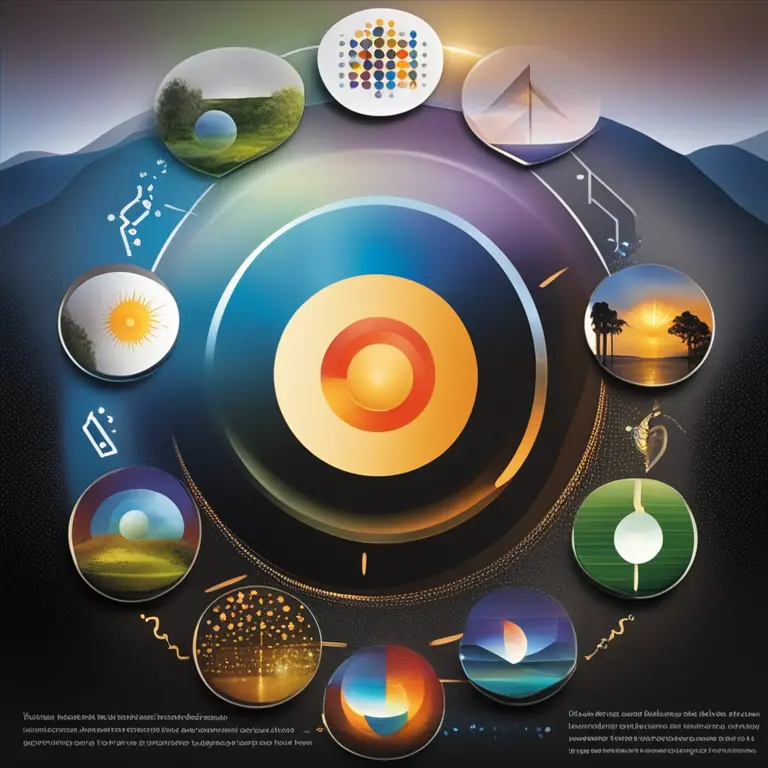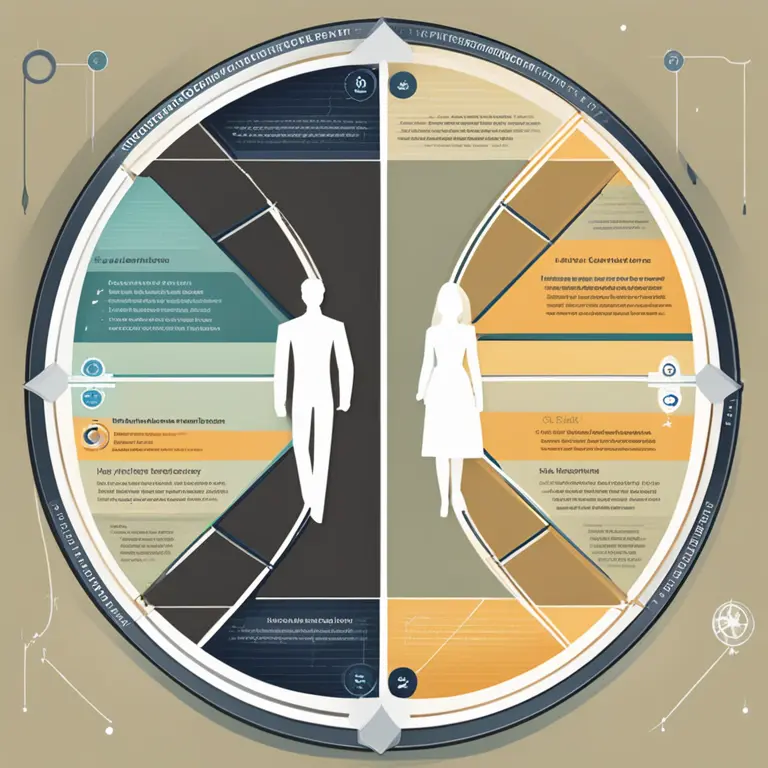
The Accuracy of Biorhythm Compatibility: A Close Look
Analyzing the reliability of biorhythm compatibility in relationships. Does this concept hold any scientific truth or is it a pseudoscientific belief?
article by Adrian Wallace
An Introduction to Biorhythm Theory
The concept of biorhythms dates back to the late 19th century, suggesting that our lives are influenced by biological cycles. These cycles purportedly affect our physical, emotional, and intellectual abilities. Biorhythm compatibility, a derivative of this theory, posits that by comparing an individual's biorhythmic patterns to another's, one can predict the potential success of interpersonal relationships. But how much credibility does this practice actually hold? In this digital age, where data reigns supreme, we delve into the question: Is biorhythm compatibility accurate?

Understanding Biorhythm Compatibility
Biorhythm compatibility is assessed by calculating the cycles of two individuals and determining how well these cycles synchronize. Proponents argue that a high level of synchronization predicts better understanding and fewer conflicts in a relationship. Conversely, out-of-sync cycles could spell trouble and misunderstandings. However, the simplicity of this concept raises questions about its veracity. After all, human relationships are complex, influenced by myriad factors beyond mere rhythm synchronization.

Scientific Scrutiny and Evidence
When scrutinized through the lens of scientific methodology, biorhythm theory has often come up short. Numerous studies have attempted to validate the claims of biorhythm theorists, but the consensus in the scientific community is that biorhythms don't hold up to empirical testing. The rhythms lack consistent periodicity, and predictions made based on these cycles are unreliable at best. Nonetheless, biorhythm calculators and compatibility charts continue to flourish online as a form of entertainment rather than a scientific tool.

The Role of Confirmation Bias
Confirmation bias plays a significant role in perpetuating belief in biorhythms. People tend to remember when predictions about compatibility or performance match their experiences while conveniently forgetting the numerous times they don't. This psychological tendency ensures a continuous stream of followers and believers in biorhythm compatibility, despite the lack of scientific backing.

Comparing to Astrology and Numerology
Like astrology and numerology, biorhythm compatibility is part of a group of pseudosciences that captivate with their allure of decoding life’s complexities. The appeal is understandable; humans have an innate desire to understand themselves and their connections with others. Even though astrology has a more vast and culturally rich history compared to biorhythms, both fields share a common ground – they provide answers that are not readily available through conventional science.
Practical Application in Everyday Life
On a practical level, people use biorhythm compatibility as a guide to navigate their personal relationships. Some might argue that even if the science isn't solid, any tool that promotes reflection and mindfulness in relationships is valuable. However, it's crucial to realize that relying solely on such metrics can lead to disregarding true communication and understanding—key components for any healthy relationship.
Concluding Thoughts on Compatibility Metrics
In conclusion, while intriguing, biorhythm compatibility lacks the scientific accurateness desired by many. It falls more into the realm of entertainment than that of genuine psychological or relational insight. Those seeking to enhance their relationships would likely benefit more from approaches backed by scientific research, such as couples therapy or communication skill-building, rather than relying on purported biological cycles.
Published: 1/30/2024
Modified: 1/30/2024
More predictions
Come back here soon to learn more about yourself and your future


The Rhythms of Life: An Insight Into Biorhythm Cycles
Delve into the compelling world of biorhythm cycles, their phases, and their relevance to everyday life in this comprehensive article.


The Basics of Biorhythms: Cycles of Life Explained
Delve into the science of biorhythms to uncover the rhythmic cycles that influence our physical, emotional, and intellectual states.


The Mechanics of Biorhythms: An In-Depth Guide
Delve into the science of biorhythms to discover how they influence your daily life and personal well-being, with insights into the cycles that govern your physical, emotional, and intellectual states.